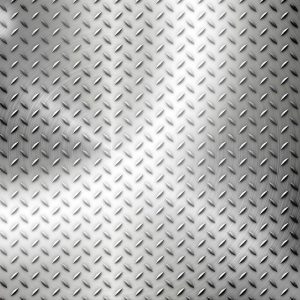
Consisting of flat sheets of metal — typically hot or cold rolled — sheet metal is used extensively in the manufacturing industry. Manufacturing companies cut and reshape it to build various products. There are three primary types of sheet metal, however, including steel, aluminum and brass. While they all offer a strong base material for the production of products, they have several notable nuances regarding their physical properties. So, what’s the difference between steel, aluminum and brass sheet metal?
Properties of Steel Sheet Metal
Steel sheet metal is both strong and protected against corrosion. Most steel sheet consists of stainless steel, so it contains chromium to protect against corrosion. At the same time, steel sheet metal is malleable, meaning it can be deformed and manipulated with relative ease.
Not surprisingly, steel is the most common type of sheet metal. The majority of sheet metal produced globally consists of steel. Steel, in fact, has become synonymous with sheet metal due to its unmatched popularity.
Steel sheet metal is available in the following grades:
- 304 Stainless Steel
- 316 Stainless Steel
- 410 Stainless Steel
- 430 Stainless Steel
Properties of Aluminum Sheet Metal
There’s also aluminum sheet metal. Aluminum, of course, is lighter than steel. Therefore, aluminum sheet metal weighs less than its steel counterpart as well. In addition to being lightweight, aluminum sheet metal offers a high level of protection against corrosion. It’s frequently used in applications where moisture is a problem, such as the production of boats. Aluminum sheet metal can still corrode, but it’s better protected against corrosion than most other types of metal, including steel.
Aluminum sheet metal is available in the following grades:
- 1100-H14 Aluminum
- 3003-H14 Aluminum
- 5052-H32 Aluminum
- 6061-T6 Aluminum
Properties of Brass Sheet Metal
While not as common as steel or aluminum sheet metal, some sheet metal is made of brass. Brass is essentially an alloy consisting primarily of copper with a small amount of zinc. It’s strong, resistant to corrosion and offers excellent conductivity. Because of its conductive properties, brass sheet metal is used in electrical applications where steel and aluminum are a poor choice.
Steel, aluminum and brass sheet metal are all relatively strong and offer a high level of protection against corrosion. Steel, however, is the strongest, whereas aluminum is the lightest. Brass, on the other hand, is the most conductive of these three metals. Hopefully, this gives you a better idea of the three different types of sheet metal and how they differ.
